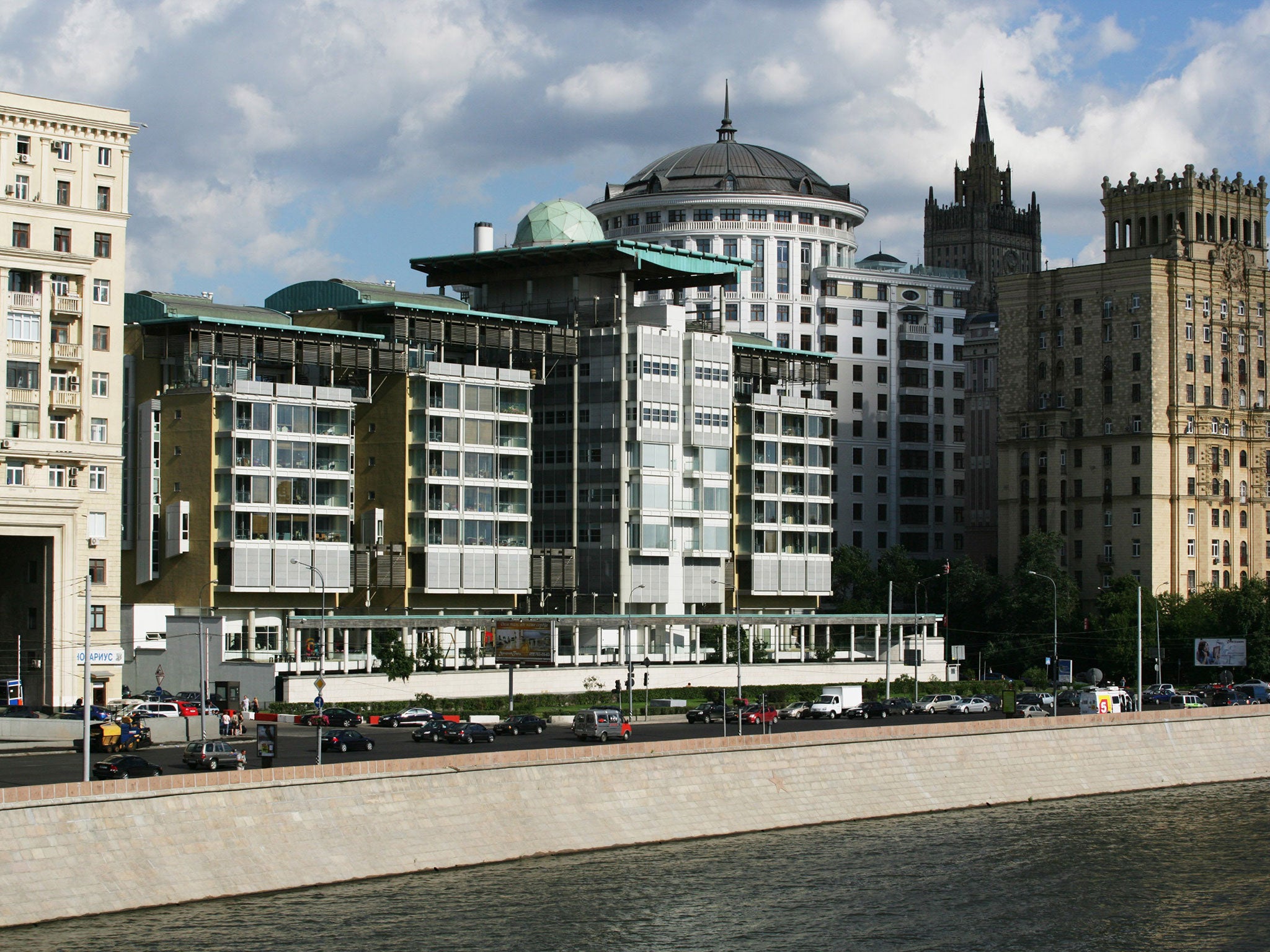Spy poisoning reaction: Russia refuses to back down as it expels diplomats in tit-for-tat row
Russians have come to view the British as ‘bad sports’ and the West ‘with disdain’, political analyst close to the Kremlin tells The Independent

Your support helps us to tell the story
From reproductive rights to climate change to Big Tech, The Independent is on the ground when the story is developing. Whether it's investigating the financials of Elon Musk's pro-Trump PAC or producing our latest documentary, 'The A Word', which shines a light on the American women fighting for reproductive rights, we know how important it is to parse out the facts from the messaging.
At such a critical moment in US history, we need reporters on the ground. Your donation allows us to keep sending journalists to speak to both sides of the story.
The Independent is trusted by Americans across the entire political spectrum. And unlike many other quality news outlets, we choose not to lock Americans out of our reporting and analysis with paywalls. We believe quality journalism should be available to everyone, paid for by those who can afford it.
Your support makes all the difference.The Kremlin showed little sign of backing away from confrontation as it outlined its response to international sanctions taken over the poisoning of former Russian spy Sergei Skripal and his daughter Yulia in Salisbury.
The Ministry of Foreign Affairs announced the expulsion of 60 US diplomats and the closure of the US Consulate in St Petersburg yesterday. Today, it said dozens of European diplomats would be joining them with tit-for-tat marching orders.
There were also new measures taken against the UK, the ringleader of the coordinated international response. The British embassy would be given a month to reduce staff to parity with Russian diplomatic staff in the UK, a statement read. The additional British measures were “a response to the provocative and unjustified actions leading to the unjustified expulsion of Russian diplomats from a number of states”.
Britain contends that the Kremlin orchestrated a chemical attack on former spy Sergei Skripal in Salisbury, using a substance from the family of novichok nerve agents, first developed in the Soviet Union in the 1970s. It has based these claims on the basis of what it describes as “capability, intent and motive”.
Earlier this month prime minister Theresa May issued an ultimatum to Moscow: accept it either ordered the attack or had lost control of undeclared chemical weapons stocks. Last week, a story in the independent Novaya Gazeta newspaper suggested the latter scenario was not implausible. The article documented the illegal sale of novichok agents to organised crime groups – and their role in the 1995 murder of banker Ivan Kivelidi. It also suggested the agents would remain toxic for decades. The revelations raised the possibility of non-state (or near-state) actors being involved in an operation.
But the Kremlin has not rushed to embrace such a theory. Instead, it has responded angrily to what it describes as a baseless anti-Russian campaign and offered a number of alternative, often barely credible explanations.
"They have blamed the UK, Ukraine, the Czechs, Kremlin critic Bill Browder, the Portland Down weapons research facility and poisoned pizzas," said Ian Bond, a former British diplomat in Moscow. "They have not suggested they lost control of the stuff, and I find that significant in itself."
According to insiders, Moscow was surprised at the scale of this week's unprecedented Western response. In total, 29 states joined the UK in expelling a total of 150 Russian staff. Even at the height of the Cold War, expulsions were never coordinated, but bilateral in nature.
So far, the British response has been a “model exercise” in coalition building, said Mr Bond: “The Kremlin will not have anticipated the participation of traditionally reluctant allies such as Italy."
The response of the Trump administration to expel 60 diplomats on Monday was seen as particularly insulting in Moscow. While the US president has toned down pro-Russia rhetoric recently, the Kremlin had entertained hopes of improving relations.
Konstantin Kosachev, chair of the Parliamentary Committee on Foreign Affairs, said that the American response had gone beyond Cold War hostilities between two superpowers. Writing on Facebook, he described the new confrontation as a “fight without rules”. The US was behaving as a “bully” – complaining about getting a taste of its own medicine, he added.
UK ambassador Laurie Bristow told the Ria news agency that Britain would study the latest Russian response and take action accordingly.
At home, there are growing demands for greater action against Russian money and influence. Home secretary Amber Rudd signalled a review of investor-grade visas issued to Russians before rules were tightened in 2015. Downing Street has also briefed about the possibility of moving against the sale of Russian sovereign debt in London.
But there are questions as to whether such a move would be possible without broader international agreement. It would also be viewed as a highly provocative gesture in Moscow, with unpredictable consequences.
Sergei Karaganov, a political analyst considered close to the Kremlin, told The Independent that Russia would use any instrument to defend its sovereignty. Russians had come to view the British as “bad sports” and the West “with disdain,” he said. This followed from “absurd allegations” that the Kremlin had poisoned “a nonentity [Mr Skripal]”.
Russia was in the process of challenging the long-term hegemony of Europe – and this was “not an easy process”.
“There will be a new world order in 10-15 years, I hope,” said Mr Karaganov. “For now, we are grappling with an indecent, rearguard action led by groups who are losing.”
Join our commenting forum
Join thought-provoking conversations, follow other Independent readers and see their replies
Comments